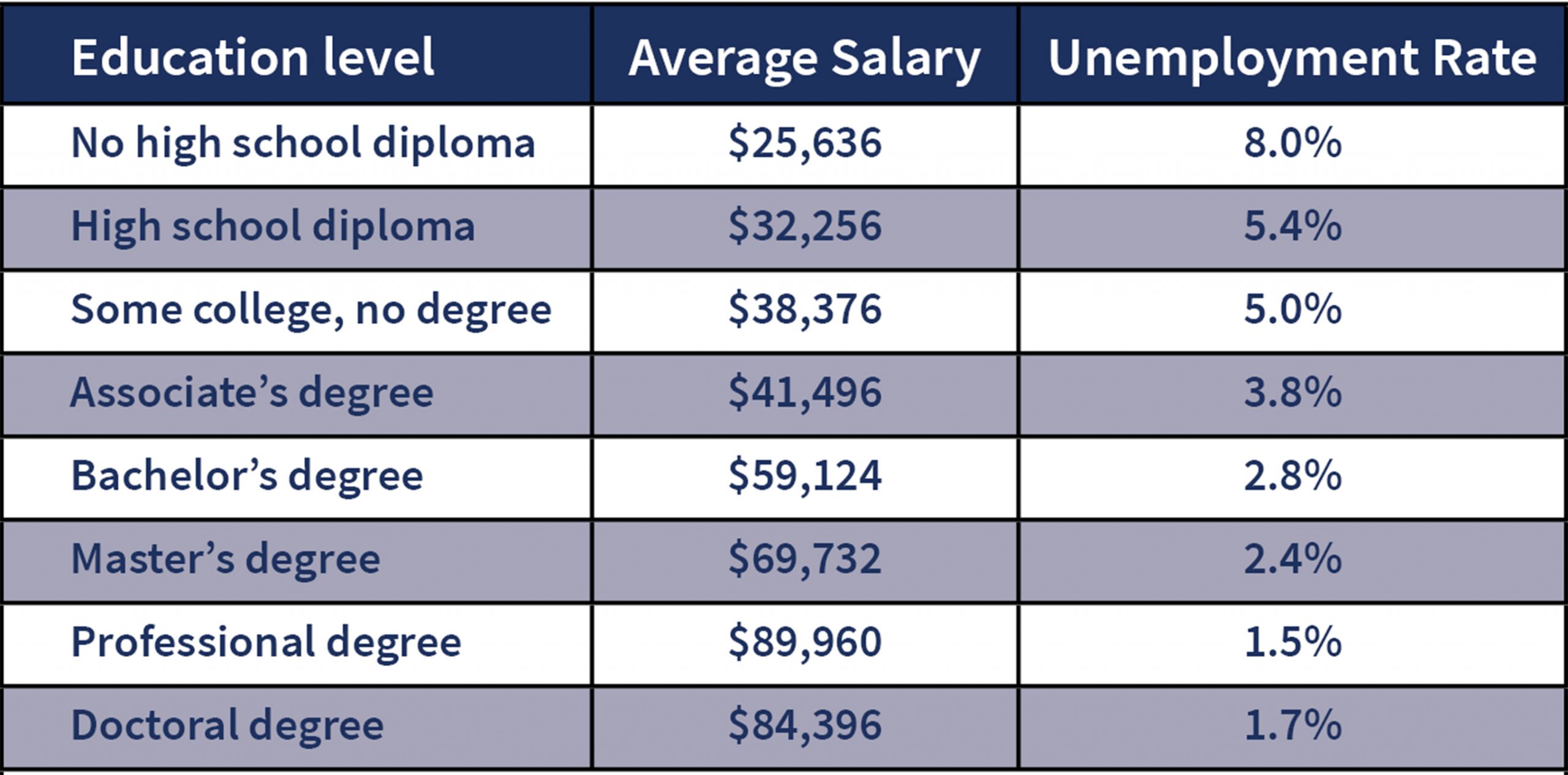When I was in high school, I knew I was going to attend college. Both my parents had college degrees, and my sister was attending college. My dad was even a university professor. I did well in school, and so it didn’t seem like much of a question to me. Of course, I would go; it was what you did. The question “Is college worth it?” did not cross my radar.
I went to a private college, which while expensive, was affordable for my parents. I didn’t have to take out loans, and I graduated debt-free, for which I feel a great deal of gratitude. I got a degree in math and physics and went on to get a doctorate in physics. I don’t regret the path I took. While I did not end up pursuing physics research (which is what my graduate degree was all about), the answer for me was yes, college was worth it—but not for the reasons you may think.
In the intervening thirty-eight years, the educational landscape has changed. The tuition, room, board, and expenses at the school I attended is now $66,000 for one year. Granted, few students pay that much, but it is still a daunting number. Naturally, parents and students are asking the question, “Is college worth it?”
This question can be difficult to answer. To put a price tag on one’s time in college is hard since there are so many different types of “worth.” Students benefit from relationships, knowledge, skill development, broadened perspectives, and, of course, a certificate to launch them into a career. Although these benefits all play a part in deciding about college, one measure of worth seems to have taken center stage in our culture, at least in the press: What is the ROI (return on investment) for college? That is, if college costs, say, $100,000 over four years, what will be the increase in your earning potential, and when will you break even? Since every individual is different, determining this is tricky, and so we rely on averages. But, in essence, the primary argument for attending college has become that it has a good return on investment. And here are the statistics to prove it:
Source: https://smartasset.com/retirement/the-average-salary-by-education-level
There it is, as clear as day. More education earns you more money. But does it?
I read a book on economics recently that introduced a very fancy statistical term: “endogeneity bias.” It has to do with whether two variables are correlated. Here is a great example: Does going to the hospital produce better health outcomes? It seems obvious that the answer is yes, but let’s look at the statistics. If we compare death rates following a hospital visit to death rates for those who did not go to the hospital, we would find that those who went to the hospital were much more likely to die than those who did not. Shall we then conclude that we should avoid the hospital? Of course not. This situation is an example where the statistics do not capture the proper relationship because other things are going on, namely, only very sick people go to the hospital. There is an endogeneity bias since the relationship between “hospital attendance” and “death rate” is not a causal one. The death rate is correlated to hospital admittance, but death is not caused by hospital admittance.
Now let’s look at our educational chart again. I would argue that the averages in this chart have a problem like the hospital example. Other factors are at play so that it is not clear if education is the cause of the increased average salary. Many other factors may significantly impact salaries, like parental care, parental education level, parental wealth, ambition, work ethic, natural talent, luck, and so forth. So, for example, probably people who are ambitious and hardworking and have wealthy parents who attended college also go to college. I would guess that average salary is caused by other factors than college attendance and that education level is similarly caused by these factors. To truly test whether a college education is going to result in a higher salary, one would need to design a test that eliminates all of these other factors. That is not so easy.
When I went to college, I gained many things. I gained some very good problem-solving and thinking skills. I increased my understanding and commitment to God. I grew to appreciate a liberal arts education at a small college. What I didn’t gain was a big salary.
My point is that, depending on what you value, there are many reasons to go to college. Our cultural dialogue about “return on investment,” however, is completely missing the point. Furthermore, even if a higher salary were the primary reason for attending college, it is not clear that college attendance causes higher salaries.
Undeniably, a college degree is required for many jobs, and this fact must be considered when deciding whether to attend college. However, the “university as gatekeeper” model is an artifact of history and culture. University degrees are neither good nor desirable gatekeepers, but the model is propped up by powerful forces that will not disappear any time soon. Because the question of whether to attend college is important, and because deciding can be difficult, understanding the question and the problematic nature of the arguments is also important. Those arguments are not as clear cut as they at first appear.
This article first appeared in the Spring 2020 issue of Colloquy, Gutenberg College’s free quarterly newsletter. Subscribe here.






